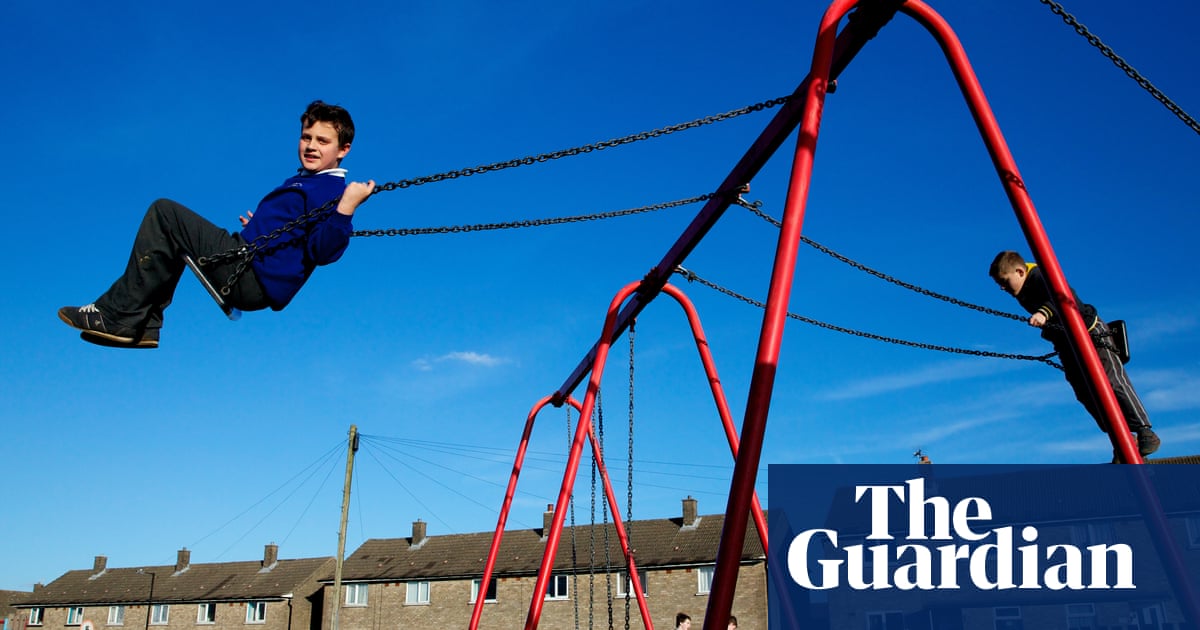A duty to provide space for children to play on new developments should be embedded in planning law, MPs and campaigners have said.
The first ever all-party parliamentary group on play was launched on Tuesday alongside a campaign to bring in a “play sufficiency duty” inEnglandto match those in Wales and Scotland.
Tom Hayes, theLabourMP for Bournemouth East and part of the group, is pushing for the planning and infrastructure bill going through parliament to be amended.
“Playgrounds are not part of statutory provision for councils at the moment,” Hayes said. “We want to change this and it would be a big change.”
He said the change in the law would be “no burden, no cost” to local authorities.
“We want to build more playgrounds and we want them to be inclusive for all children,” he said. “The money for this can come from developers’ section 106 funds that they provide when they build new homes.
“Play is so important for children and for communities. We want to bring in a play sufficiency duty and we are looking at tabling that as an amendment to the planning bill.”
Hayes and the non-profit group Play England also announced a 10-year campaign to “make play normal again” at an event that brought slides into the heart of parliament.
Experts warned the government last yearthat children were “suffering huge damage to their health and wellbeing from policymakers refusing to prioritise the need for outdoor play”.
The inquiry by the levelling up committee heard that children were “less important than bats”in planning law, and that there had been no mention of play in the national planning policy framework (NPPF) until last year.
In December, after lobbying from Play England, the NPPF was amended to include protection for “formal play spaces” – but as policy guidance, not law.
Eugene Minogue, the executive director of Play England, said: “Play sufficiency means making sure that every child has enough time, space, opportunity and freedom to play – wherever they live. It’s about making play part of how we plan and design our communities, not just something added afterwards (or forgotten altogether).
“Our aim is to make play a normal and visible part of everyday life again. We want a shift to a culture where play is recognised, accepted and protected at school, in our streets, in our communities.”
“This is not just about building new playgrounds. It’s about embedding play in how we build communities – so children don’t just have homes, they have a childhood.”
Wales introduced a play sufficiency duty in 2012 and Scotland passed a play strategy implementation plan in 2023. Both include guidance on planning for play and on local authorities’ duties to assess play opportunities. In Wales the duty is embedded in health, planning, education and housing strategies.
Play England, in a submission to the planning bill that is going through parliament, warned that “informal play spaces like streets, estates and parks remain entirely unprotected by any policy or legislation [and are] routinely lost to development or traffic”.
The bill has faced widespread criticism from environmental groups and play campaigners who have warned that further deregulation of planning lawscould result in the loss of green and doorstep play spaces.
